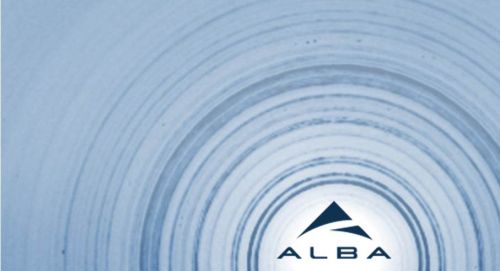
15/03/2018
Major Upgrade of an ALBA Synchrotron Beamline
Major Upgrade of an ALBA Synchrotron Beamline
ALBA synchrotron currently offers 8 beamlines. 8 beamlines mean 8 different potential ways to produce synchrotron light and 8 different ways to use it in 8 different laboratories located around the electron accelerator with the aim of determining the intimate structure of materials in a way that depends on their characteristics and the information required.
One of these beamlines is called NCD, which stands for Non Cristalline Diffraction: this beamline is used to get structural information about non crystalline materials, that is to say materials in which atoms are not perfectly ordered, such as polymers or proteins, for instance.
By the way, the NCD beamline is now NCD-SWEET and the new name has been announced this week by ALBA. But, of course, the change goes far beyond: the beamline devoted to Small Angle and Wide Angle X-ray Scattering (SAXS, WAXS) has gone through a major upgrade and now offers users further experimental possibilities and higher quality data.
Upgraded items in the SAXS WAXS experimental techniques (SWEET) involve a new monochromator system, a new photon counting detector, a new sample table and a beam conditioning optics with µ-focus and GISAXS options. This new GISAXS (Grazing, Incident SAXS) technique is now available and will be open to academic users in the next call for experiments.
One of these beamlines is called NCD, which stands for Non Cristalline Diffraction: this beamline is used to get structural information about non crystalline materials, that is to say materials in which atoms are not perfectly ordered, such as polymers or proteins, for instance.
By the way, the NCD beamline is now NCD-SWEET and the new name has been announced this week by ALBA. But, of course, the change goes far beyond: the beamline devoted to Small Angle and Wide Angle X-ray Scattering (SAXS, WAXS) has gone through a major upgrade and now offers users further experimental possibilities and higher quality data.
Upgraded items in the SAXS WAXS experimental techniques (SWEET) involve a new monochromator system, a new photon counting detector, a new sample table and a beam conditioning optics with µ-focus and GISAXS options. This new GISAXS (Grazing, Incident SAXS) technique is now available and will be open to academic users in the next call for experiments.
More news
27/06/2017
Barcelona Synchrotron Park’s sustainable brownfield restoration program presented at AquaConSoil 2017
21/06/2017
Catalonia confirms itself as pole of attraction for foreign investments
15/06/2017
Construction of the Natura Bissé’s new world headquarters is well on its way
06/06/2017
Walk in the Park: the biodiversity routes await you
31/05/2017
UAB second most innovative university in Spain
24/05/2017
PRUAB: 10 years in strengthening relationships between research and business fabric









